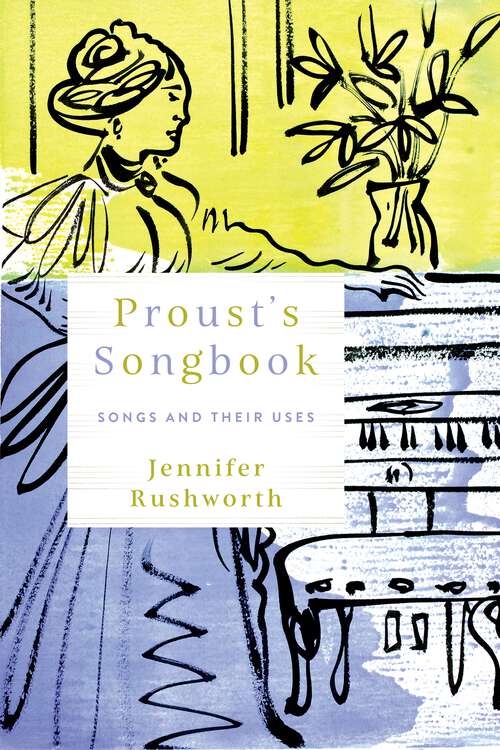
Proust's Songbook: Songs and Their Uses (Sound in History)
Criticism, Music
Synthetic audio, Automated braille
Summary
In Proust’s Songbook, Jennifer Rushworth analyzes and theorizes the presence and role of songs in Marcel Proust’s novel À la recherche du temps perdu (In Search of Lost Time). Instead of focusing on instrumental music and large-scale forms such as… symphonies and opera, as is common in Proust musical studies, Rushworth argues for the centrality of songs and lyrics in Proust’s opus. Her work analyzes the ways in which the author inserted songs at key turning points in his novel and how he drew inspiration from contemporary composers and theorists of song. Rushworth presents detailed readings of five moments of song in À la recherche du temps perdu, highlighting the songs’ significance by paying close attention to their lyrics, music, composers, and histories.Rushworth interprets these episodes through theoretical reflections on song and voice, drawing particularly from the works of Reynaldo Hahn and Roland Barthes. She argues that songs in Proust’s novel are connected and resonate with one another across the different volumes yet also shows how song for Proust is a solo, amateur, and intimate affair. In addition, she points to Proust’s juxtapositions of songs with meditations on the notion of “mauvaise musique” (bad music) to demonstrate the existence of a blurred boundary between songs that are popular and songs that are art.According to Rushworth, a song for Proust has a special relation to repetition and memory due to its typical brevity and that song itself becomes a mode of resistance in À la Recherche—especially on the part of characters in the face of family and familial expectations. She also defines the songs in Proust’s novel as songs of farewell—noting that to sing farewell is a means to resist the very parting that is being expressed—and demonstrates how songs, in formal terms, resist the forward impetus of narrative.